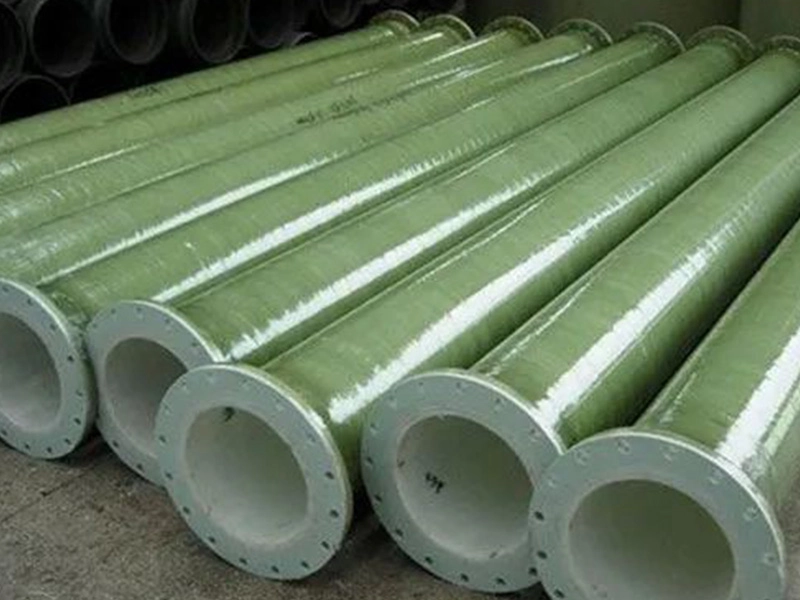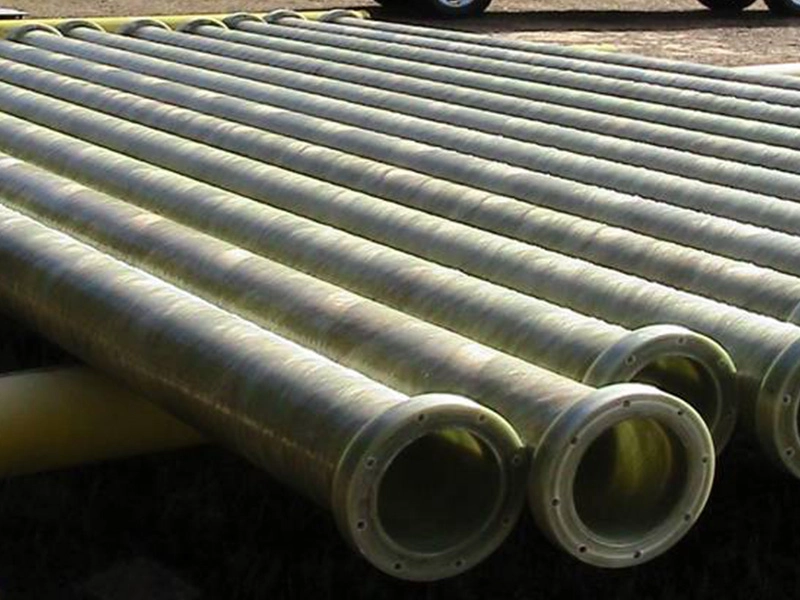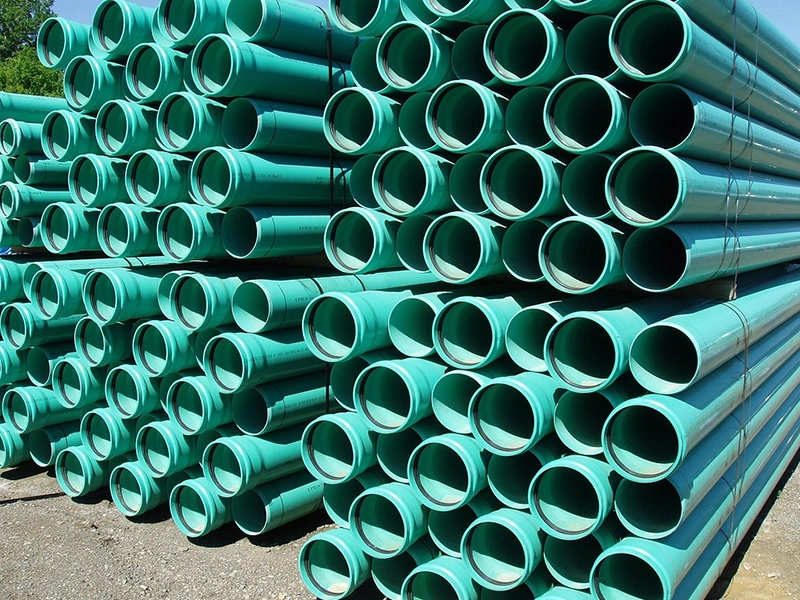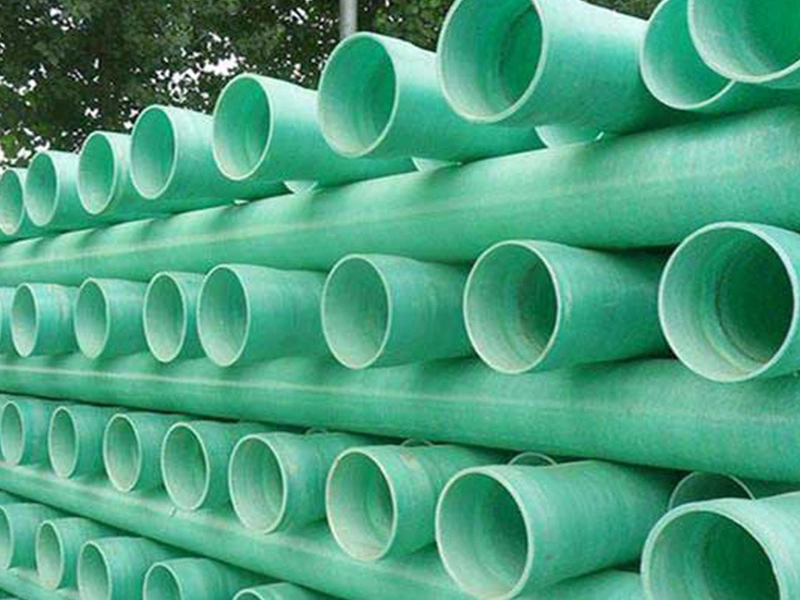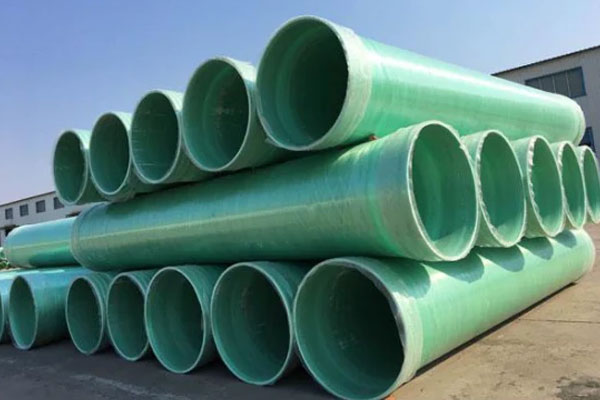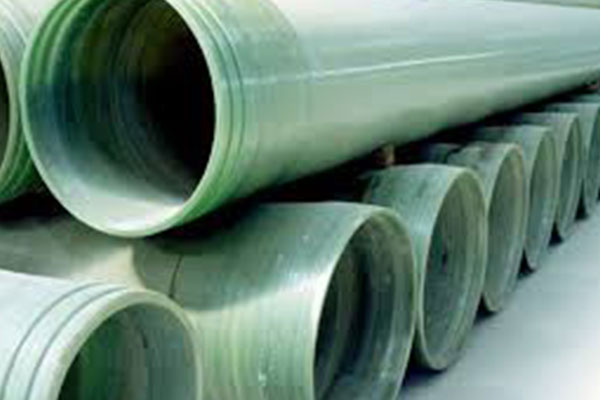FRP pipe is a pipe manufactured of FRP material by contact molding or filament winding method. Various types of resins like thermosetting polyester, epoxy, phenolic resin, etc are used to get specific FRP pipe properties in the final product. The most widely used reinforcement is the fiberglass.
Product performance introduction
Chemical-resistant filament-wound pipes are designed for use in industries where corrosion resistance and durability are critical. Here’s an overview of the product details for chemical-resistant filament-wound pipes:
Product Details
-
Material Composition:
- Constructed from fiberglass-reinforced plastic (FRP) with high-quality resin systems like vinyl ester, epoxy, or polyester.
- These resins are specifically chosen for their chemical resistance, ensuring durability in harsh chemical environments.
-
Manufacturing Process:
- Produced using filament winding, a process where continuous fiberglass filaments are wound over a mandrel in precise patterns.
- This method creates a dense, layered structure with high strength-to-weight ratios, ideal for handling internal pressure.
-
Chemical Resistance:
- Resistant to a wide range of chemicals, including acids, alkalis, solvents, and oxidizing agents.
- Commonly used in environments with exposure to corrosive substances such as in wastewater treatment, petrochemical plants, and industrial chemical processing facilities.
-
Size and Dimensions:
- Available in diameters ranging from 25mm (1 inch) to over 4000mm (160 inches) and can be manufactured to custom specifications.
- Wall thickness can be customized according to pressure and chemical requirements, generally ranging from 3mm to 50mm or more.
-
Pressure and Temperature Ratings:
- Typical pressure ratings range from 50 psi to 300 psi or higher, depending on the application.
- Operating temperature range varies by resin type, generally suitable for -40°C to +120°C, with high-temperature resins available for up to +180°C.
-
Applications:
- Ideal for industries such as chemical processing, oil and gas, water and wastewater treatment, desalination plants, and food processing.
- Common applications include transport and storage of corrosive chemicals, effluent water systems, and abrasive slurries.
-
Joining Methods:
- Can be connected with flanges, threaded joints, or mechanical couplings.
- Flanged connections are often preferred for chemical applications due to enhanced sealing capability.
-
Additional Features:
- UV-resistant coatings are often added for outdoor installations.
- Can be lined with additional protective materials, such as thermoplastic liners, for enhanced protection in highly corrosive environments.
Advantages
- Superior Corrosion Resistance: Long-lasting even in aggressive chemical environments.
- High Strength and Durability: Filament winding creates a robust structure that withstands high pressures.
- Lightweight and Easy to Install: Easier handling compared to steel or metal pipes of the same size and strength.
- Low Maintenance: Resistant to rust and scaling, resulting in lower operational costs over time.
Chemical-resistant filament wound pipe
Series :
FRP Pipe >application
Sewer Interceptors,Water Supply,Force Mains,Outfalls,Industrial Effluents,Salt Water Lines,Chemical Process Lines,WWTP Piping,Odor Control Piping,Irrigation,Cooling Water,Potable Water,Penstocks,Storm Water.
FAQ
Q :
Can the product size be customized?
A :
Yes, the product size can be customized
Q :
How long it will take to produce the product ?
A :
It depends on the quantity
Other related products

